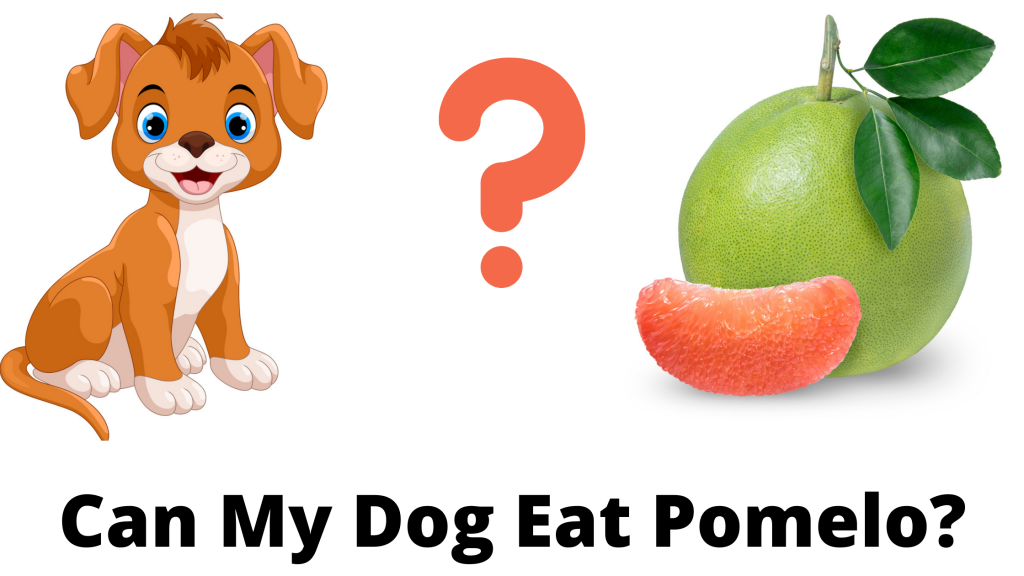There are many occasions when people begin to cut a juicy and delicious pomelo fruit. Their dogs want a small piece. At this time, a question arises: Can dogs eat a piece of Pomelo? Being this fruit irresistible to them. There are various insecurities for those owners who are not sure whether to feed their pets with Pomelo and add it to the diet and foods of dogs.
A wide variety of questions can haunt all dog owners, and one of them is: What are the benefits of a dog eating Pomelo? Many people can worship this fruit and, besides, dogs eat it exquisitely. After this fruit is peeled off, its large sections can become very juicy and strange at the same time.
This fruit is so attractive that once people taste it, they cannot stop eating it and adding it to their balanced diet. Despite being a fruit very well received by humans, many people are dog parents who doubt this fruit. Are dog owners allowed to share a Pomelo? The answer to this concern is debatable among all dog parents.
Recommanded Dog Food
Last update on 2026-02-13 / Affiliate links / Images from Amazon Product Advertising API
What is Pomelo?
Many people and even dogs can adore the pomelo citrus’ sweet and lemon flavor. Pomelo is a fruit that has some nutritional compounds that are very beneficial for humans, although, for pets, these can be toxic. Pomelo is also known as “Chinese Pomelo” and can be potential rivals in size with watermelons.
Read More: Can Dogs Eat Cheez-Its?
Contents
Can Dogs Eat Pomelo?
After consuming this fruit, the poor results in each of the dogs are if they ingest in large quantities and without the owners’ supervision. Many dogs of different breeds do not tolerate or do not enjoy citrus fruits and acidity since these can bother them. Lemons and pomelos are some of the citruses fruits highly toxic to all dogs.
Pomelos are the ideal fruit for dogs since they are healthy and contain high potassium, vitamin C, and dietary fiber. Pomelo is considered a safe fruit for all dogs. However, people should not abuse it or be constantly fed to their dogs. That is because high sugar levels can cause digestive problems and unpleasant diarrhea.
It is recommended that dog owners do not go overboard in giving them large amounts of this rich and juicy fruit. The puppies must grow up very healthy and happy, being possible only with balanced and moderate diets of some foods and fruits.
How Much Pomelo Can Your Dog Eat?
Pomelo, although it is a very rich, healthy, and safe fruit for dogs to eat, certain amounts are healthy and can be harmful. Like other fruits, Pomelo contains many sugars and acids that, in large quantities, and dog food can be very harmful to their health. Dogs eating many Pomelo can cause digestive problems and cause them to gain considerable weight.
It is highly recommended that dogs get a couple of Pomelo bites now and then during the weeks. Although dogs can eat Pomelo, other citrus fruits tend to be highly toxic to them (Pomelo and lemon). Canine pet owners should do their homework before including citrus fruit in their dog’s diet.
How to Feed Pomelo to Your Dog?
Pomelo is a fruit that should very well supply in all dogs and, for this, there are a variety of methods and tips. Pomelo has a very thick rind that dogs cannot eat, so owners must remove them before giving them to dogs. A cut of a small section of the fruit’s pulp is more than enough for a dog to taste this delicious fruit.
The person must do a thorough review of the fruit as it may contain seeds that are not pleasant to dogs. If seeds are present, they should be removed and given to the dog for enjoyment.
Can Dog Be Allergic to Pomelo?
Many foods could cause allergies in dogs. However, this is not the case if they eat Pomelo. People must exercise extreme care and caution when they decide to introduce Pomelo into a dog’s diet. The most recommended by experts is that you should start very slowly introducing Pomelo in a dog’s meals.
People should be very attentive if their pets may have an allergic reaction to Pomelo. The most common symptoms of a negative reaction to Pomelo are itching, hives, ear and foot infections, facial swelling, and indigestion.
If dogs do not show these symptoms, it is an excellent sign that they are not allergic to Pomelo. However, Pomelo is not a highly harmful fruit or the first reason to cause allergies in small and large canines.
Grapefruit and Citrus Fruits in Dogs
Grapefruit is the fruit of the tree known as Citrus Paresi, which, as the name implies, is around yellow or pinkish citrus fruit. Its origin is from Southeast Asia. It contains a sour taste and is preferably ingested as juice. Its growth occurs in tropical and subtropical climates between autumn and winter.
Experts assure and presume that this fruit arose due to spontaneous hybridization between Citrus sinensis and Citrus maxima in the seventeenth century. After that merger, it spread throughout the Caribbean and the United States, becoming very popular in those areas.
Is Pomelo Healthy?
It is one of the healthiest fruits with multiple medicinal benefits, ideal for weight loss diets. They develop bone health as anti-inflammatory, antibacterial, and excellent for their water content (90%). Helps in improving blood pressure and blood lipid levels.
Calories and their various compounds act favorably on insulin, while antioxidants take care of the skin. It serves as a diuretic, fights diabetes, and against cancer or the heart. It is high in vitamin C and A, potassium, magnesium, antioxidants, proteins, flavonoids, fiber, folic, malic, oxalic, tartaric, and citric acids.
All the benefits are guaranteed as long as it is included in a personalized, varied, and complete diet. It is good for losing weight, but it is not a magic solution if it does not work in conjunction with other foods. However, it is not a suitable fruit for everyone since it presents complications with certain medications.
Health Benefits of Pomelo for Dogs
Grapefruit in dogs has different benefits than humans, but it is still highly recommended and consumable for them. The presence of fiber works to support the dog’s digestion, helping in weight control, colon health, and constipation. Potassium and protein keep muscles, nerves, and enzymes healthy.
The vitamin C in grapefruit helps improve immune function and the ability to prevent bacteria and viruses. Oxidative stress and inflammation reduction also benefit from antioxidants. The cholesterol and triglyceride levels are also balanced, but the anticancer property is not yet verifiable.
Are Pomelo and Grapefruit the Same?
Grapefruit and grapefruit are citrus fruits that tend to be confused with their names. However, they are not the same. Their differences lie in the shape, origin, flavor, size, and texture, but their benefits are just as healthy. For example, grapefruit is smaller than grapefruit, and the sweetness is more enhanced in the first compared to the second.
Grapefruit is native to Barbados (Western India). Its color is completely yellow, with soft and fine skin. Grapefruit, for its part, is from Southeast Asia, lime green in color, and acquires a yellow hue with its maturation. The skin is smooth but thicker than grapefruit, with a sour, bitter, and sweet taste.
What Happens if a Dog Eats Citrus?
Citrus fruits are listed as one of the most controlled foods in dogs because they can cause poisoning. Not even grapefruit or orange, which are “healthy” fruits, cannot be eaten excessively, as they must be minimal. Exaggerating the consumption of these can have great consequences for wanting to give new tastes.
The essential oils of limonene, linalool, and the compound psoralens, are the main causes of very serious gastrointestinal discomfort. However, the consumption of grapefruit or orange should not be chronic; they only have to be used as an additive in small amounts of food.
Conclusion:
Even if they are few servings or small quantities, Pomelo can be an excellent fruit that helps dogs obtain very beneficial results. All canine pet owners will be able to share the delicious pomelo fruit with their faithful little and big friends being cared for by each of those responsible so that they have a happy, calm and healthy life. It is important to keep in mind that the more responsible we are, the longer our life partner will have.
Related Food Guides:


















